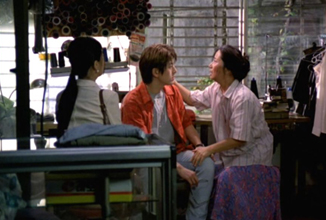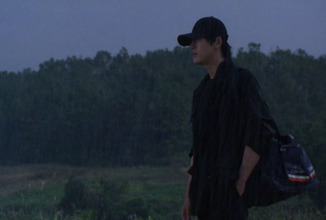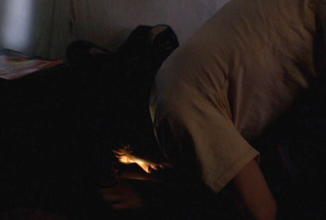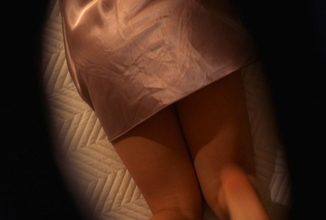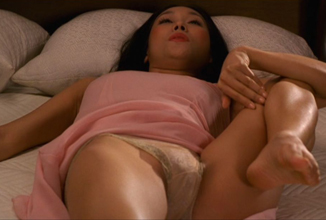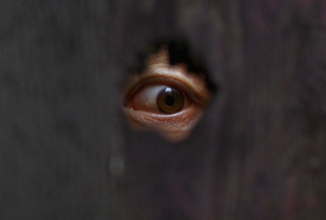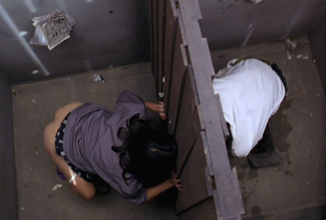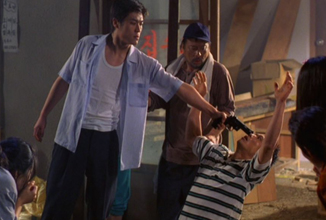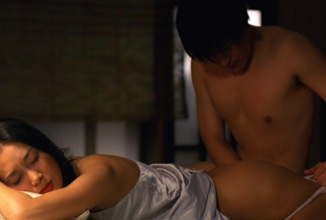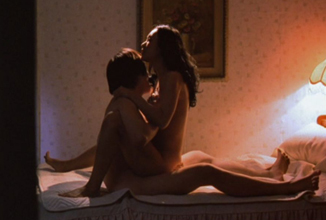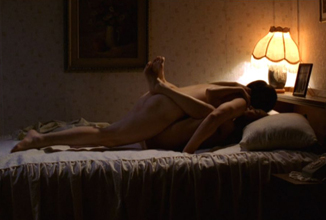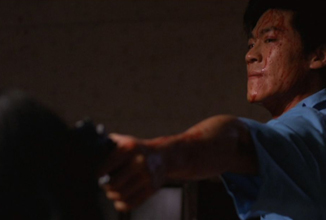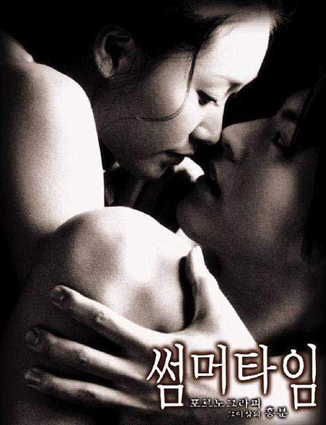
 |
|||||||||||||
Synopsis: During his search to find out where he came from, and who his parents were, adoptee Jin-woo, (Ryoo Soo-yeong), is put in contact with a woman (Gi-ok, played by Song Ok-sook) who claims to remember him as a child. On meeting her, she begins to tell him the story of his mother and father, and as she recounts her tale, we step back in time to see Sang-ho (also played by Ryoo Soo-yeong), on the run for his (minor) involvement in the Kwangju uprising.
Review: The Kwangu uprising (the Romanization of which is often written as Gwangju), and the far reaching fallout from it, pervades the very core of Summer Time, not only as an underlying aspect of the overall narrative but also as the ultimate reason for the main characters' current situations, as well as the indirect cause of their future actions (see the end of this review for a brief overview of the Kwangju uprising).
Of course, by far the largest of society's ills dissected within Summer Time are those relating directly to the events surrounding the Kwangju uprising itself, with each of the main characters holding a mirror, if you like, to one of the factions that ultimately came to devastating blows in May 1980, and while these references could never be described as anywhere near subtle (and could even be said to be overly obvious in parts), they easily serve their purpose, nonetheless:
The character of Sang-ho stands for, and as part of, the student protesters, his only minor involvement in the demonstrations adding to, and reaffirming, his belief that he (and thereby the students as a whole) has done nothing wrong, while the story of the (unnamed) object of his affections in the flat below (raped as a young girl by her then policeman husband to be - as she was mourning the death of her father during the unrest - and subsequently forced to live under virtual house arrest; her life shown to be utterly controlled by her husband, i.e.: citizens held under Martial Law by the government) speaks of innocent civilians caught up in the events at Kwangju despite having no direct involvement in them, and the combination of her story with that of Sang-ho clearly references the huge price which had to be paid by so many for the slow, painful move to democracy in Korea. The (again, unnamed) husband, obviously, plays the part of the authorities during the uprising - his harsh treatment of his wife and the way he ultimately deals with her affair mirroring the hard line taken against Kwangju residents by the government, police and military troops alike - and as much as his actions affect the other characters in Summer Time (again speaking of the battle between government and civilians), the changes he goes through, as well as his resultant choices, could be said to be a reflection of the slow changes within Korea itself (again in terms of government/authority figures) in the years following the Kwangju uprising. Even the character of Gi-ok (the woman who tells Jin-woo the story of his parents) could be considered to be part of the discussion of the authoritarian actions taking place in Kwangju during the period, with her choices outwardly driven by social morals, rights and wrongs and the greater good, while below the surface being clearly brought on by a far more personal agenda.
Spread copiously on top of the social and political commentary of Summer Time is the sexual affair of Jin-woo and his beautiful neighbour, and while this forms the most involved sexual content of the film, it is far from isolated in that respect. Jin-woo's affair, as already stated, begins as voyeurism - an activity indulged in by more than just him in his community, and, in fact, the vast majority of the testosterone-fuelled antics of the males of the village add yet more to the implication that women of the time were, first and foremost, sexual objects (rather than equal members of society), there predominately to serve the needs and pleasures of men.
Story Background: The Kwangju uprising and the events subsequent to it were deeply significant to the South Korean democratic movement. Student pro-democracy demonstrations (protesting against the increasingly harsh policies brought in by General Chun Doo-hwan) resulted in violent clashes between government troops and student protestors between May 18th and May 27th 1980, with angry citizens also soon joining in. By the time that the clashes had finally subsided, an estimated 200 people were dead, most of them civilians. The Kwangju uprising also led to the eventual arrest and imprisonment of two former South Korean presidents, and was also thought to have triggered a rise in anti-American sentiment in Korea, as a result of claims that the Reagan administration had strongly endorsed the use of force in quelling the riot. Cast: The majority of the cast give excellent performances in Summer Time, but Kim Ji-hyeon and Choi Cheol-ho, as the beautiful object of Sang-ho affections and her authoritarian ex-policeman husband respectively, easily outshine the rest. Kim Ji-hyeon… Hee-ran (the beautiful woman who has an affair with Sang-ho - listed in the film credits but never named within the film)
Summary: Summer Time dissects and discusses the events surrounding, and subsequent to, the Kwangju uprising of 1980 within a deeply erotic and highly sexually charged narrative, and its ultimate success is largely dependent on whether or not individual viewers get overly bogged down (or caught up) by the sheer volume of sex and eroticism on show.
DVD
Details:
|
|||||||||||||
All images © iPictures, Sidus, Cinema Service, Enter One Review © Paul Quinn |
|||||||||||||
